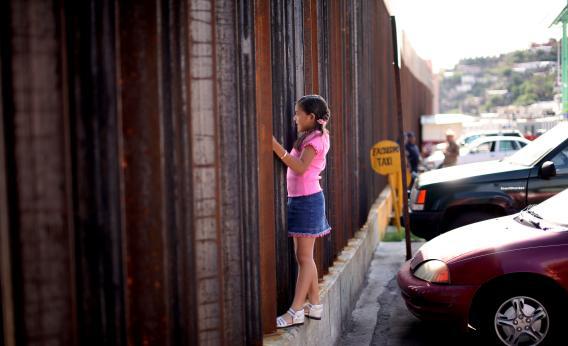Perhaps this is the price we pay for the anachronistic and conceptually unsound decision to segregate the debates into “domestic” (i.e., budget) issues and “foreign” (i.e., bombs) issues but it’s extremely frustrating to me how the topic of immigration continues to be sequestered away from mainstream economic debate. We treat it as a kind of narrow issue of ethnic politics (working class Latinos vs working class whites) or interest groups (tech companies want to hire Indian engineers) rather than as the core economic policy question it deserves to be. To see how absurd this is, just think about the past.
Imagine a counterfactual history of the United States in which we had slightly different tax and budget policies over the centuries, and you’re imagining an extremely boring scenario. Most likely, things would be about the same. But imagine a counterfactual history of the United States in which we never opened our borders to the ethnic “others” of the past—the Catholics and Jews of Eastern and Southern Europe, then more recently Asians and Latin Americans. That is a very different vision of America. Not a bad place, necessarily, but probably one that looks a lot more like New Zealand—pleasant, much less densely populated, much more focused on primary commodities, somewhat poorer, and much more monolithically focused on the originally settled port cities.
Or think about some problems we’re said to face today:
— Inadequate supply of workers with certain specialized skills.
— Inadequate demand for U.S.-made goods and services.
— Endemic malgovernment and lack of democracy in many countries.
— Funding problems for the popular and successful Social Security system.
— Growing anxiety about America’s ability to retain a strategic advantage vis-a-vis China.
These are problems that could be relatively easily ameliorated through better immigration policy. You start with the literally billions of people in the world suffering from malgovernment either in the form of lack of democracy (Russia, China), endemic corruption (India), poor macroeconomic management (Japan), rampant rent-seeking (Italy, Mexico), or lack of state capacity to perform basic governance functions (most of Africa). Throw in the people who might like to escape oppressive local cultural norms (Saudi Arabia), 75 percent top marginal tax rates (France), risky geopolitics (Taiwan), and you’re looking at a huge bloc of people. Many of these folks will nonetheless find good reasons to not want to move to the United States. But there are 640 million people around the world who say they’d like to permanently relocate to another country, of whom 150 million say the U.S. is their first choice. Throw in some folks who’d accept the U.S. as a second-best alternative or who might be interested in some temporary work here and you’ve got a huge pool of potential recruits.
Given that even amidst America’s demand shortfall there are real labor shortages (both of high-skilled labor and of some categories of less-skilled work that serve as complements to other factors of production) many of these people could substantially raise their incomes by moving to the United States.
That’s help on the supply side that becomes help on the demand side. Two demand side things happen when someone moves to the United States. One is that since their income rises, their volume of consumption rises. The other is that even in today’s global economy, you’re going to buy many more US-made goods and services if you live in Dallas or Denver rather than Dalian or Djibouti or Dominica.
So we’re addressing the problem of global poverty and misgovernment, we’re correcting supply-side flaws in the American economy and we’re bolstering economy-wide demand. And it’s trivial to see that in strategic terms this improves our posture vis-a-vis faster-growing, poorer, larger population China. It also bolsters the Social Security (and to a lesser extent Medicare) programs simply by improving the population pyramid. But what’s more, the supply of people who’d like to move to the United States to take advantage of living in one of the richest and best-governed countries ever to exist far exceeds the quantity of people who’ll realistically be let in. That means we can easily structure the terms of entry so as to bolster the fiscal position of the United States. We could, for example, simply auction the visas or else tweak tax liability and benefit eligibility to have the same impact.
Now obviously “more immigrants = more prosperity” isn’t a completely accurate blanket rule. You don’t want to let in criminals. There are probably a lot of very nice Salvadoran great-grandmas out there who despite being fine people are at this point too old to be making meaningful economic contributions. But the default assumption should be that if an able-bodied, law-abiding person wants to move here to get a job that’d be mutually beneficial. Our politicians talk, constantly, about how the United States is “the greatest country on earth” but they’re oddly reluctant to pursue the policy implications of the fact that millions of people around the world agree with them about that. We treat the desire to migrate here with suspicion, as a problem we need to solve with better guards and biometric identity verification systems rather than as something that should be taken at face value. The United States of America is a much better-than-average place to live. Lots of people would like to move here. Taking advantage of that fact has, historically, been far and away the biggest contributor to American national greatness. We should do it again.
